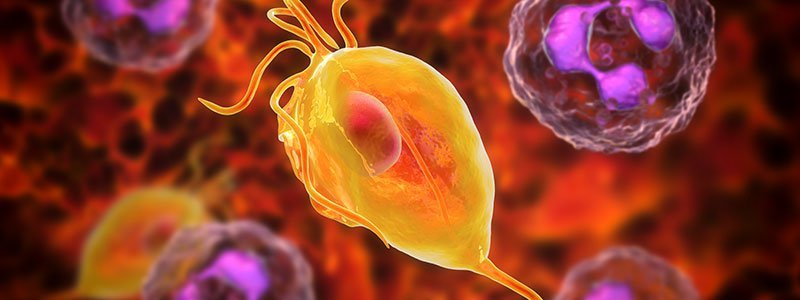Why are my periods so heavy?

A heavy period, known by its medical term menorrhagia, is when your period lasts more than 7 days, and you experience unusually heavy bleeding. You can stop your period from being so heavy by taking medications, supplements, or having certain surgical procedures.
A heavy period, known by its medical term menorrhagia, is when your period lasts more than 7 days, and you experience unusually heavy bleeding. While it’s normal for women to have heavy periods, most people who menstruate don’t lose enough blood to experience menorrhagia.
Menorrhagia is when your period is so heavy that you’re not able to do your day-to-day activities because you need to change your tampon or pad less than every two hours. You might also be having severe cramping or pass blood clots at least the size of a quarter. If left untreated, menorrhagia can cause anemia in people who menstruate. If you think you’re experiencing abnormally heavy periods and dread your period every time it comes around, you should see a doctor right away.
When your period is abnormally heavy, there could be a range of reasons. It could be a hormone-related issue, the cause of a medical condition, or even just stress.
- Growths in the uterus. These can be cancerous (uterine or cervical) or noncancerous ( polyps, fibroids, and adenomyosis).
- Hormonal imbalances. These include estrogen and progesterone, among others.
- Infections. These include those that can be sexually transmitted (STIs) like gonorrhea and chlamydia, among others.
- Other illnesses or disorders. These may include bleeding disorders like von Willebrand disease (VWD), or non-bleeding disorders like liver, kidney, or thyroid disease.
It’s difficult to pinpoint an exact cause for heavy periods as there can be many. Even certain over-the-counter drugs like aspirin can increase your risk of menorrhagia, so it’s best to talk to your gynecologist.
What are the symptoms of heavy periods?
If you think your periods are unusually heavy, there are some specific symptoms you should look out for.
Common signs can include:
- Needing to change your pad or tampon more than every couple of hours
- Bleeding for more than a week
- Passing large blood clots
- Experiencing a sharp pain in the lower part of your stomach
- Feeling constantly tired or lightheaded
- Being out of breath easily
It could be the case that you’re just having a very heavy flow as opposed to menorrhagia, so make sure to get advice from your doctor.

How are heavy periods diagnosed?
During your appointment, your doctor will review your medical history and ask you specific questions about your menstrual cycle. You may be asked to keep a log of your period to track your symptoms, how many days it lasts, and the heaviness of your flow. This will help your doctor better understand the experience you’re having and give you a proper diagnosis.
Besides a physical exam and a review of your history, your doctor may also order several other tests. Some common tests include:
- Pelvic exam. Your doctor checks your vulva, vagina, cervix, ovaries, uterus, rectum, and pelvis for any irregularities.
- Pap test. Your doctor swabs your cervix to collect a sample of cells that are then sent to a lab and tested for potential cancers or other issues.
- Blood test. Your doctor collects some of your blood using a standard needle and testing tubes; your blood is analyzed in a lab for any abnormalities.
- Ultrasound. This computer scan uses sound waves to check your uterus and see what issues you might be having.
- Endometrial biopsy. Your doctor scrapes the lining of your uterus and uses the sample to screen for cancer or any abnormal cells.
- Sonohysterogram. Your doctor performs an ultrasound scan to look for any irregularities in your uterus. You might feel mild to moderate cramping during this procedure.
- Hysteroscopy. Using a tiny tool, your doctor checks your uterus for any polyps or fibroids that might be causing the heavy bleeding.
Using one or more of these methods to diagnose you, your doctor should be able to rule out any alternative causes of your heavy periods.
How can I make my period stop being so heavy?
Whether you are diagnosed with menorrhagia or not, there are medical interventions you can talk to your doctor about. These drug therapies and procedures will likely reduce your period flow or stop your period completely. The measure you take will depend on such factors as your age, overall health, how you respond to certain medications, the cause and extent of your bleeding, and your specific wants and needs. You and your doctor will be able to best determine these as you go through all your possible options.
Drug therapies for heavy periods
- Iron supplements. You might need these if you have anemia that’s been caused by blood loss.
- Anti-inflammatories (NSAIDs) like Ibuprofen, Aspirin, or Motrin. These over-the-counter medications may not only help reduce period cramps and discomfort, but they can also help make your period less heavy.
- Birth control (including oral, IUDs, or a vaginal ring). These options stop your body from ovulating and can cause lighter periods.
- Oral progesterone. Heavy periods can sometimes be from an imbalance of estrogen or progesterone levels in your body; oral progesterone can sometimes be used to balance out your levels.
- Tranexamic acid. This tablet is taken by mouth to improve blood clotting and decrease the overall amount of blood loss you experience during your period.
Surgical options for heavy periods
If none of your drug therapies help improve your heavy periods, you and your doctor might consider the following surgical procedures:
- Dilation and curettage (D&C). This is a common procedure where your doctor opens (dilates) your uterus and scrapes the lining (endometrium) to remove some of the tissue. This process works to lighten your period for that month, but you will most likely need to get additional procedures if your periods are still heavy.
- Hysterectomy. This is a surgery to completely remove your uterus and cervix so that you don’t have a menstrual cycle. Keep in mind you will also no longer be able to have children, and it is a non-reversible operation.
- Endometrial ablation. A procedure that uses a radiofrequency laser to destroy tissue in the lining of the uterus. Doctors don’t recommend you get pregnant after this procedure as pregnancy complications are not uncommon.
- Myomectomy. A procedure where your doctor removes uterine fibroids (also called myomas) while preserving your uterus. Uterine fibroids are relatively common –– around 40% to 80% of menstruators have them, though myomas usually don’t cause symptoms. For some people, these fibroids can cause blood vessels in the uterus to grow, which then leads to heavy periods.
More than 10 million people who menstruate each year are affected by menorrhagia. This means that about one out of every five menstruators has it. If you are experiencing one or more of the symptoms discussed, make sure to see your doctor right away.

QUESTION
What is pelvic inflammatory disease (PID)? See Answer
Medically Reviewed on 5/17/2022
References
Centers for Disease Control and Prevention: “Heavy Menstrual Bleeding.”
Cleveland Clinic: “Heavy Menstrual Bleeding (Menorrhagia),” “Uterine Fibroids.”
Children’s Hospital Of Philadelphia: “Heavy Menstrual Bleeding (Menorrhagia).”
Johns Hopkins Medicine: “Menorrhagia.”
Mayo Clinic: “Menorrhagia (heavy menstrual bleeding),” “Pelvic Exam.”
NHS: “Tranexamic acid.”